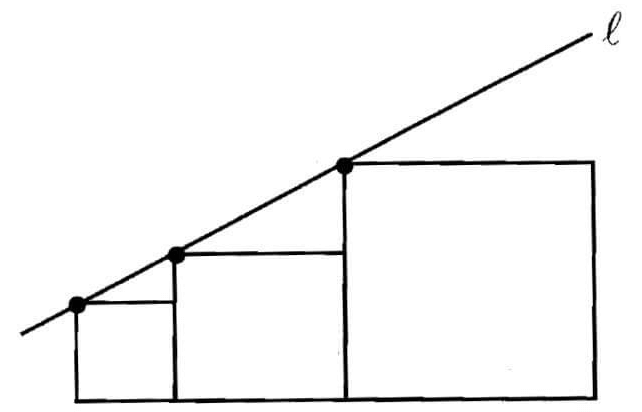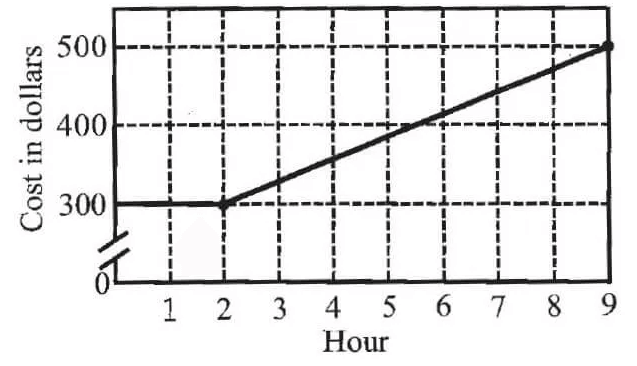PROVE THAT PROBLEMS IN DIFFERENTIATION
Question 1 :
Differentiate the following
If u = tan-1 [√(1+x2) - 1]/x and v = tan-1x, find du/dv
Solution :
v = tan-1x
x = tan v
u = tan-1 [√(1+tan2v) - 1]/tan v
u = tan-1 [√(sec2v) - 1]/tan v
u = tan-1 [sec v - 1]/tan v
By applying sec v = 1/cos v and tan v = sin v / cos v
u = tan-1 ((1 - cos v)/sin v)
u = tan-1 ((2sin2 (v/2))/2sin (v/2) cos (v/2))
u = tan-1 ((sin (v/2)/cos (v/2))
u = tan-1 (tan (v/2))
u = v/2
du/dv = 1/2
Question 2 :
Find the derivative with tan-1 (sin x/(1 + cos x)) with respect to tan-1 (cos x/(1 + sin x))
Solution :
Let u = tan-1 (sin x/(1 + cos x))
u = tan-1 [(2 sin (x/2) cos (x/2)/(2 cos2 (x/2))]
= tan-1 [(sin (x/2) /(cos (x/2)]
= tan-1 (tan (x/2))
u = x/2
du/dx = 1/2 ------(1)
Let v = tan-1 (cos x/(1 + sin x))
v = tan-1 (sin (π/2 - x)/(1 + cos (π/2 - x))
By applying the trigonometric formula for sin x and 1 + cos x, we get
v = tan-1 (sin (π/2 - x/2)/cos (π/2 - x/2))
v = tan-1 (tan (π/2 - x))
v = (π/2 - x/2)
dv/dx = -1/2 ------(2)
From (1) and (2), we have to find the value of du/dv
(1)/(2) ==> (1/2) / (-1/2)
= -1
Question 3. :
If y = sin-1x then find y''
Solution :
y = sin-1x
y' = 1/√(1 - x2)
√(1-x2) (y') = 1
√(1-x2) (y'') + y' (1/2√(1-x2))(-2x) = 0
√(1-x2) (y'') + y' (-x/√(1-x2)) = 0
((1-x2) (y'') - y' x)/√(1-x2) = 0
(1-x2) (y'') - y' x = 0
y'' = xy'/(1-x2)
y'' = xy'/(1-x2)
By applying the value of y', we get
y'' = x( 1/√(1 - x2))/(1-x2)
y'' = x/(1 - x2)3/2
Question 4 :
If y = e^(tan-1x) show that (1+ x2 ) y'' + (2x −1) y' = 0 .
Solution :
y = e^(tan-1x)
log y = tan-1x
(1/y)y' = 1/(1+x2)
y' = y/(1+x2)
y'' = [(1 + x2)y' - y(2x)] / (1+x2)2
(1+x2)2 y'' = [(1 + x2)y' - y(2x)]
By dividing (1 + x2) on both sides, we get
(1+x2) y'' = y' - 2xy/(1+x2)
(1+x2) y'' = y' - 2xy'
(1+x2) y'' = y'(1 - 2x)
(1+x2) y'' = - y'(2x - 1)
(1+x2) y'' + y'(2x - 1) = 0
Hence proved.
Kindly mail your feedback to v4formath@gmail.com
We always appreciate your feedback.
©All rights reserved. onlinemath4all.com
Recent Articles
-
Digital SAT Math Problems and Solutions (Part - 146)
Apr 18, 25 06:52 AM
Digital SAT Math Problems and Solutions (Part - 146) -
Logarithmic Derivative Problems and Solutions
Apr 16, 25 09:25 PM
Logarithmic Derivative Problems and Solutions -
Digital SAT Math Problems and Solutions (Part - 145)
Apr 16, 25 12:35 PM
Digital SAT Math Problems and Solutions (Part - 145)

